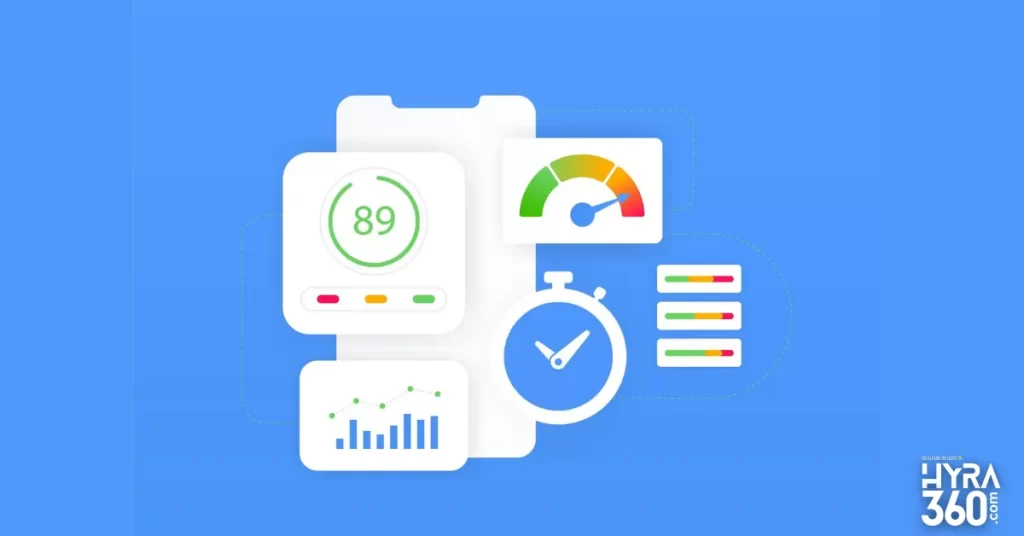In today’s digital age, having a website is crucial for any business, including real estate. However, simply having a website is not enough. To be successful, a real estate website must be designed with conversion optimization in mind. In this article, we will discuss the key elements of an effective, high-converting real estate site.
Introduction
The primary goal of a real estate website is to attract and convert buyers/renters into leads and clients. To achieve this goal, the website must be designed with the user in mind. The website should be easy to navigate, visually appealing, and provide valuable information to the user.
On this page
Quick Enhancements That Boost Conversions
- Feature updated property listings: One of the most important elements of a real estate website is the property listings. It is crucial to keep the listings up-to-date and accurate. This will help build trust with potential clients and increase the likelihood of a conversion.
- Prominent lead capture forms: The website should have prominent lead capture forms that are easy to find and use. These forms should be strategically placed throughout the website to encourage users to submit their information.
- Build trust with headshots, licenses, testimonials: Building trust with potential clients is essential for a successful real estate website. Including headshots, licenses, and testimonials on the website can help build credibility and trust with potential clients.
- Advanced listing filters and search: Advanced listing filters and search options can help users find the properties that meet their specific needs. This can help increase the likelihood of a conversion.
- Mortgage calculators and affordability tools: Including mortgage calculators and affordability tools on the website can help potential clients determine if they can afford a particular property. This can help increase the likelihood of a conversion.

Compelling Real Estate Content and Features
- Local area guides and market reports: Providing local area guides and market reports can help potential clients learn more about the area and make informed decisions about buying or renting a property.
- Quizzes and questionnaires for buyers: Quizzes and questionnaires can help potential clients determine what type of property would best meet their needs. This can help increase the likelihood of a conversion.
- Social media buttons for sharing listings: Including social media buttons on the website can help users share listings with their friends and family. This can help increase the reach of the website and increase the likelihood of a conversion.
- Blog covering moving, homes, neighborhoods: Including a blog on the website can help provide valuable information to potential clients. This can help increase the likelihood of a conversion.

Visually Appealing Real Estate Photography
- Avoid overused, generic stock photos: Using unique and high-quality photos can help make the website stand out and increase the likelihood of a conversion.
- Hire a professional photographer: Hiring a professional photographer can help ensure that the photos on the website are of high quality and visually appealing.
- Use images that attract buyer attention: Using images that are visually appealing and attract buyer attention can help increase the likelihood of a conversion.
Persuasive Real Estate Sales Copy
- Showcase expertise in listings and bios: Including information about the expertise of the real estate agents can help build credibility and trust with potential clients.
- Provide area-specific market insights: Providing area-specific market insights can help potential clients make informed decisions about buying or renting a property.
- Entice buyers with engaging messaging: Using engaging messaging can help capture the attention of potential clients and increase the likelihood of a conversion.
Calls-to-Action That Drive Leads
- Use dynamic, action-focused phrasing: Using dynamic, action-focused phrasing can help encourage users to take action and submit their information.
- Place CTAs strategically on each page: Placing CTAs strategically on each page can help increase the likelihood of a conversion.
- Guide visitors into conversion funnel: Guiding visitors into the conversion funnel can help increase the likelihood of a conversion.

Property Search and Listings
- Separate sold listings from active ones: Separating sold listings from active ones can help ensure that users are only seeing properties that are currently available.
- Balance high-demand and fixer-uppers: Balancing high-demand and fixer-uppers can help ensure that the website is appealing to a wide range of potential clients.
- Advanced search filters for buyers: Including advanced search filters can help potential clients find the properties that meet their specific needs.
Lead Capture Forms
- Email signups and lead gen dropdowns: Including email signups and lead gen dropdowns can help encourage users to submit their information.
- Follow up on all buyer inquiries: Following up on all buyer inquiries can help build trust with potential clients and increase the likelihood of a conversion.
- Build email lists for future marketing: Building email lists can help ensure that potential clients are kept up-to-date on new listings and other important information.
A Fast, Modern Mobile Experience
- Fully responsive site design: Having a fully responsive site design can help ensure that the website is accessible on all devices.
- Simple navigation menus: Having simple navigation menus can help ensure that users can easily find the information they are looking for.
- Streamlined conversion process: Having a streamlined conversion process can help increase the likelihood of a conversion.
Easy Access to Contact Information
- List phone, email, live chat prominently: Listing phone, email, and live chat prominently can help ensure that potential clients can easily contact the real estate agents.
- Display contact info on all key pages: Displaying contact info on all key pages can help ensure that potential clients can easily find the information they are looking for.
Continually Test and Optimize Conversions
- A/B test calls-to-action and forms: A/B testing calls-to-action and forms can help determine which ones are most effective at driving conversions.
- Review analytics and heatmaps: Reviewing analytics and heatmaps can help determine which pages and elements are most effective at driving conversions.
- Keep iterating based on user data: Keeping iterating based on user data can help ensure that the website is continually improving and driving more conversions.
Summary
In conclusion, optimizing real estate sites for conversions is crucial for success in today’s digital age. By following the key elements discussed in this article, real estate agents can create effective, high-converting websites that drive leads and sales. Remember to continually test and optimize the website based on user data to ensure that it is continually improving and driving more conversions.



























